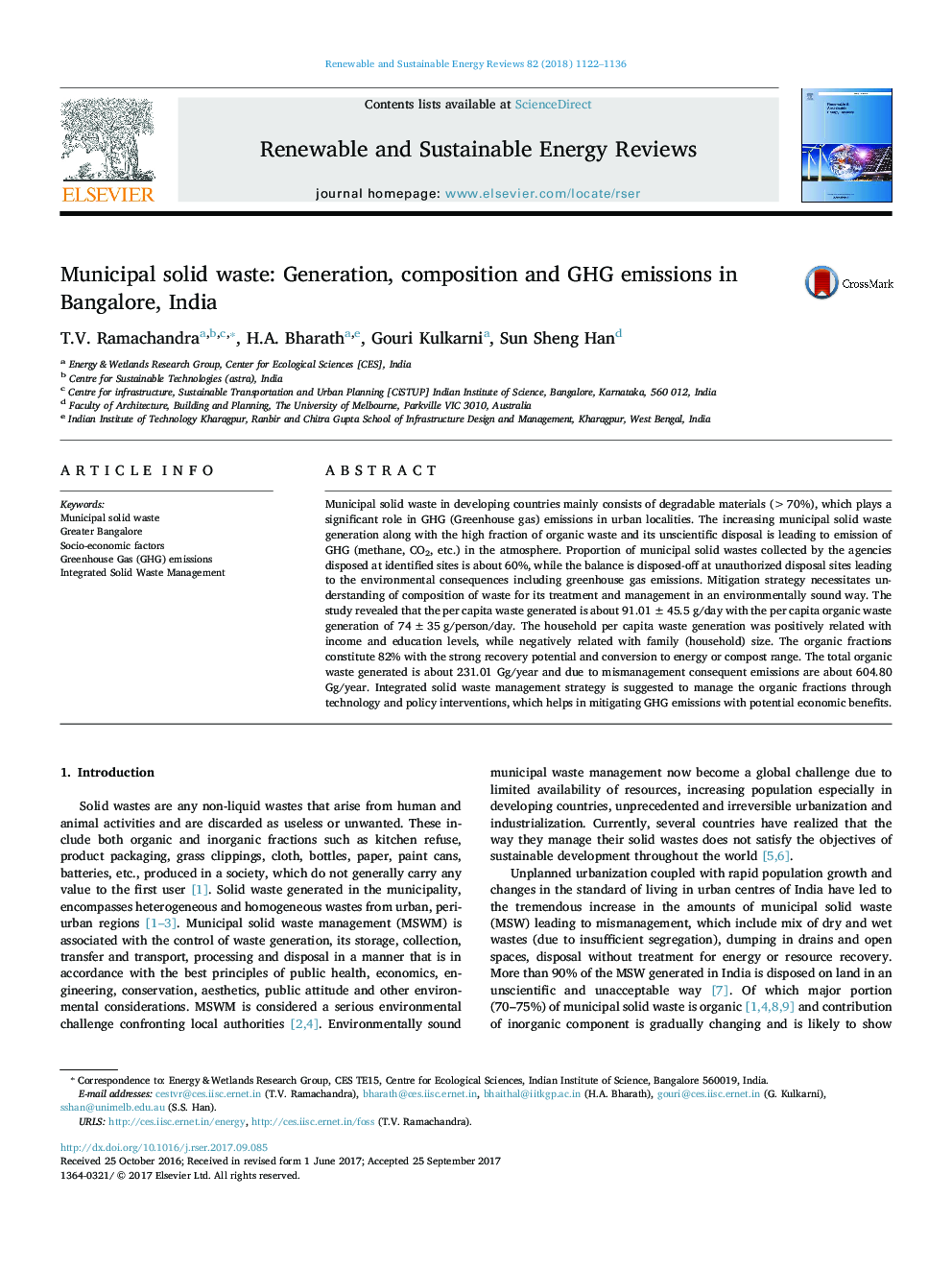| Article ID | Journal | Published Year | Pages | File Type |
|---|---|---|---|---|
| 5481930 | Renewable and Sustainable Energy Reviews | 2018 | 15 Pages |
Abstract
Municipal solid waste in developing countries mainly consists of degradable materials (>70%), which plays a significant role in GHG (Greenhouse gas) emissions in urban localities. The increasing municipal solid waste generation along with the high fraction of organic waste and its unscientific disposal is leading to emission of GHG (methane, CO2, etc.) in the atmosphere. Proportion of municipal solid wastes collected by the agencies disposed at identified sites is about 60%, while the balance is disposed-off at unauthorized disposal sites leading to the environmental consequences including greenhouse gas emissions. Mitigation strategy necessitates understanding of composition of waste for its treatment and management in an environmentally sound way. The study revealed that the per capita waste generated is about 91.01± 45.5 g/day with the per capita organic waste generation of 74±35 g/person/day. The household per capita waste generation was positively related with income and education levels, while negatively related with family (household) size. The organic fractions constitute 82% with the strong recovery potential and conversion to energy or compost range. The total organic waste generated is about 231.01 Gg/year and due to mismanagement consequent emissions are about 604.80 Gg/year. Integrated solid waste management strategy is suggested to manage the organic fractions through technology and policy interventions, which helps in mitigating GHG emissions with potential economic benefits.
Keywords
Related Topics
Physical Sciences and Engineering
Energy
Renewable Energy, Sustainability and the Environment
Authors
T.V. Ramachandra, H.A. Bharath, Gouri Kulkarni, Sun Sheng Han,
